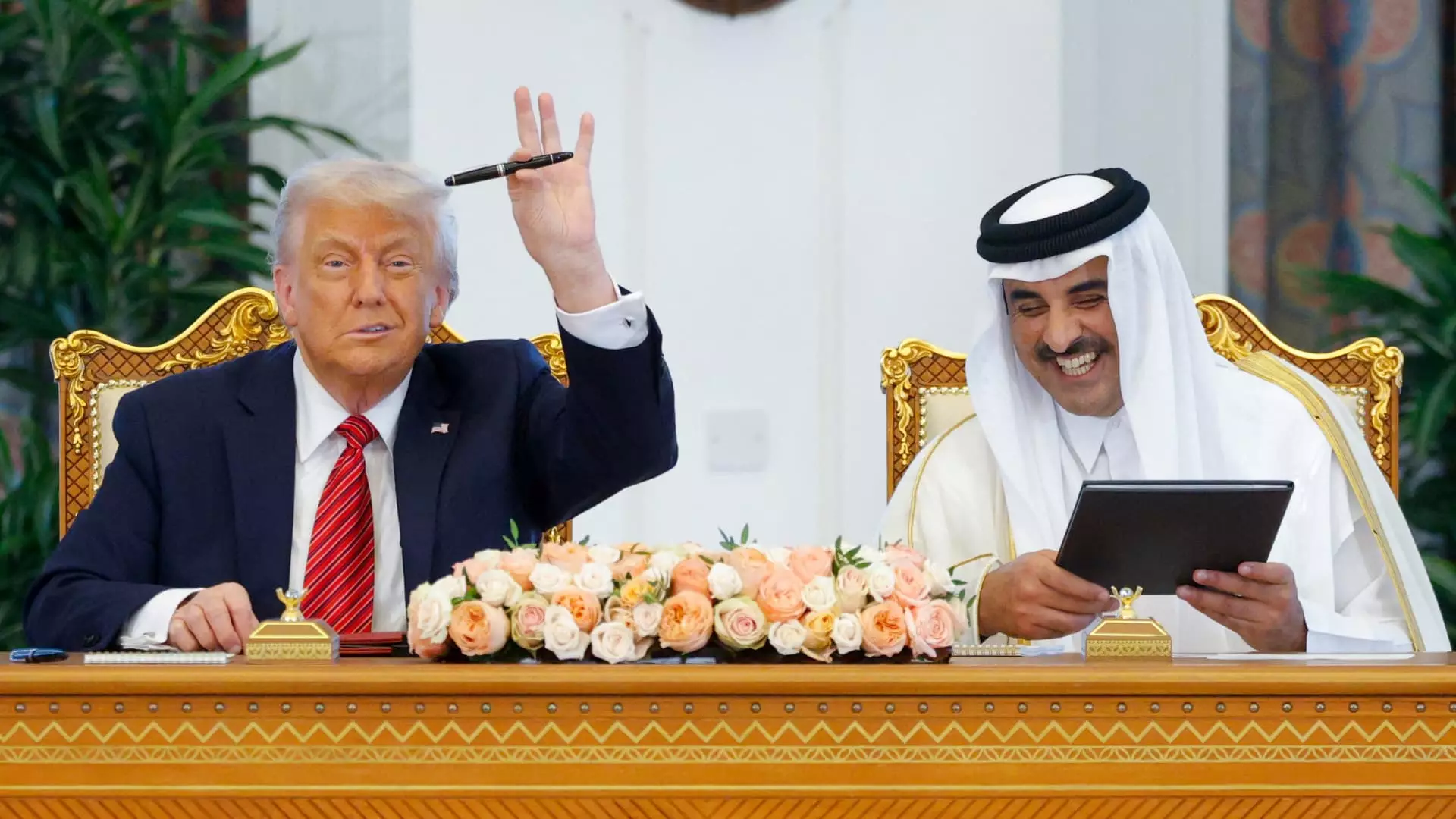As the political drama unfolds surrounding Qatar’s audacious proposition of gifting a $400 million Boeing 747 to former President Donald Trump, one cannot help but raise an eyebrow at the implications of such a grand gesture. Sheikh Mohammed bin Abdulrahman al-Thani, Qatar’s prime minister, vehemently argues that this is a mere “exchange between two countries” rooted in a longstanding partnership marked by “transparency.” However, behind this facade lies a troubling intersection of diplomacy, ethics, and national security that has raised alarm among political observers.
The Qatar jet offer is far more than a friendly diplomatic gesture; it is an ostensible attempt to curry favor with a leader whose approval ratings ebb and flow like the tides. In a world where influence is currency, it is difficult to discount the possibility that such extravagant gifts are not simply benign acts of goodwill but strategic moves made in calculated self-interest. When leaders of nations engage in what is portrayed as “mutually beneficial” relationships, it beckons the question—who truly benefits? Is it the United States gaining a high-value asset, or is it Qatar gaining a stronger foothold in American political affairs?
Bypassing Accountability
Democratic lawmakers have gone toe-to-toe with the administration, invoking the Foreign Emoluments Clause of the Constitution to argue that Trump’s acceptance of this extravagant gift is not just ethically questionable, but potentially illegal. Critics like Rep. Jamie Raskin and Sen. Chris Murphy underline a significant concern: the gift of a jet is symptomatic of broader institutional corruption that threatens the very fabric of American democracy. When politicians suggest that such engagements turn into “get-rich-quick schemes” for the powerful, it highlights the susceptibility of high office to exploitation by foreign entities.
The notion that a gift of this magnitude could pass unchallenged through the political machinery raises serious ethical questions. Are lawmakers prepared to let such transactions take place behind closed doors without adequate oversight? When the Constitution explicitly states that no high-ranking official should accept gifts from foreign states without congressional consent, what are we saying about our commitment to upholding those principles when we turn a blind eye to such proposals?
Echoes of Influence
Al-Thani’s attempt to downplay the significance of this jet gift as an ordinary diplomatic exchange reeks of a calculated evasion. The timing—a week following Trump’s extensive tour of the Middle East—comes off as both opportunistic and orchestrated. The implication that Qatar seeks to buy influence is as unavoidable as it is controversial. When the defense relationship is framed in the context of gifting a military asset, it becomes challenging to separate altruism from self-serving interests.
Political theorists and observers might argue that this scenario reflects the ideological differences between liberal and conservative approaches to foreign relations. While some may perceive the situation as an opportunity for the U.S. to solidify alliances, others, particularly those with a center-left outlook, view it as a compromising inflection point that could lead to the subjugation of American interests to foreign influence.
Window of Opportunity or Breach of Faith?
As Trump himself mused over the potential future of this Boeing 747—suggesting it could serve as a temporary Air Force One replacement—the reality of this situation becomes ever more complicated. While the former president may envision this as a win for American foreign relations, others see it as a looming constitutional crisis, questioning whether such a transaction can stand without accountability. The underlying concern remains steadfast: are we allowing foreign interests to sway American political integrity?
Ultimately, the Qatar jet saga is not merely a tale of political gifts and transactional diplomacy. It paints a stark picture of where U.S. foreign policy stands today—caught between the allure of financial gain and the imperative of ethical governance. In trading potential influence for lavish gifts, the line between diplomacy and corruption continues to blur, challenging us to re-evaluate our values as we navigate the turbulent waters of international relations.


Leave a Reply